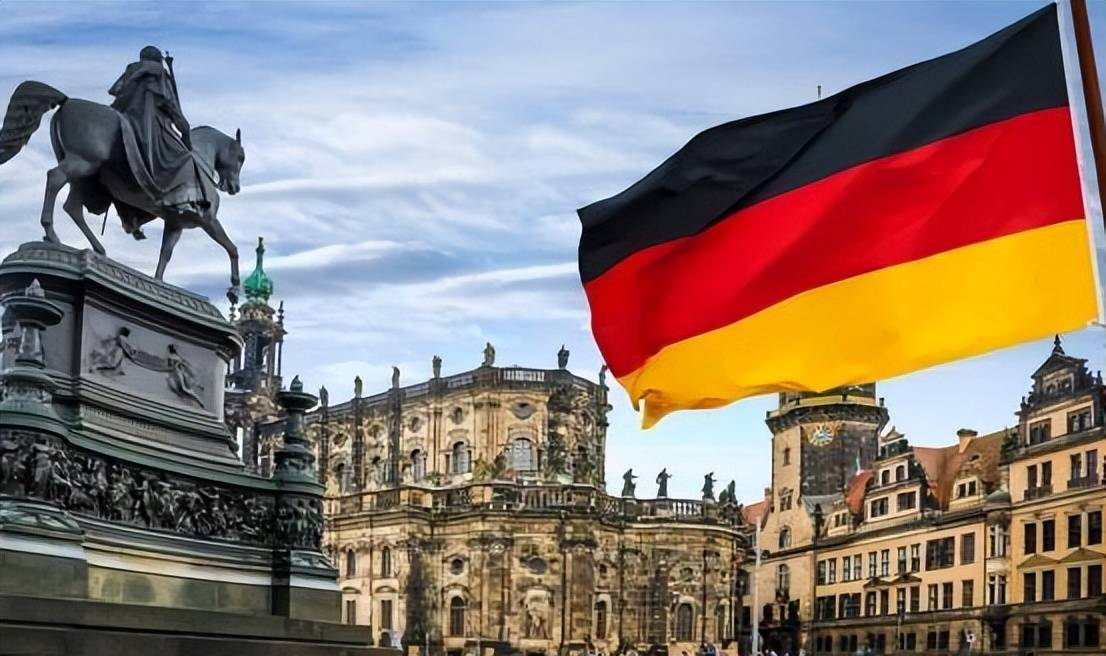
In the golden autumn of 2024, Germany, the heartland of the European economy, is experiencing an unprecedented economic challenge. With the release of a series of negative economic data, the alarm of Germany's economic recession has become increasingly loud, attracting widespread attention worldwide. From the sharp decline in industrial orders, to the widespread pessimism among businesses, to the government's pessimistic predictions about the economic outlook, the German economy is entering a period of uncertainty.
As a global manufacturing powerhouse, the performance of Germany's industrial sector has always been an important indicator for measuring the country's economic situation. However, the latest data shows that Germany's industrial order volume in August fell significantly by 5.8% month on month, the largest decline since January this year. Among them, the domestic order volume suffered a Waterloo of 10.9%, and the foreign order volume was not spared, with a month on month decrease of 2.2%. This series of data undoubtedly sounded the alarm for the German industrial sector, foreshadowing the upcoming winter.
Key industries such as automobiles, chemicals, and machinery manufacturing are the backbone of the German economy, but these industries have also been impacted by a decrease in orders. With the slowdown of global demand and the instability of geopolitical situation, German enterprises are facing unprecedented market pressure. Enterprises have expressed that the current market environment poses severe challenges to their survival and development.
The deterioration of German corporate sentiment is another important signal of economic recession. According to the latest survey by the German Machinery and Equipment Manufacturers Association and the Munich Economic Research Institute, the sentiment of major machinery manufacturing and chemical industry companies in Germany is generally pessimistic. They stated that factors such as economic uncertainty, high interest rates, and unstable geopolitical situations have all had a negative impact on their operations.
Under the combined effect of these unfavorable factors, the investment willingness of German companies has generally declined. They manage their funds more cautiously, preferring to save their income rather than take risks in investing or expanding production. This conservative investment strategy further exacerbated the declining trend of the German economy.
The German government's economic outlook data also confirms the pessimism of business sentiment. According to predictions, Germany's gross domestic product is expected to shrink by 0.2% this year, while the German economy has already shrunk by 0.3% last year. This means that the German economy has been on the brink of recession for two consecutive years.
German Deputy Chancellor and Minister of Economy and Climate Protection, Robert Habeck, stated that in addition to economic risks, Germany also faces structural issues and geo economic challenges. He pointed out that Germany needs to address its structural issues and enhance its economic competitiveness to cope with the current crisis.
Faced with such a severe economic situation, Germany needs to find new ways to cope with the challenges. On the one hand, Germany needs to increase investment in innovation and research and development to promote industrial upgrading and transformation. By developing new technologies, products, and services, we aim to enhance the market competitiveness and profitability of German enterprises.
On the other hand, Germany needs to strengthen cooperation and communication with the international community. In the context of globalization, no country can cope with the challenge of economic recession alone. Germany needs to work together with other countries to address global economic issues. By strengthening international cooperation and exchanges, Germany can expand its international market and enhance its position and influence in the global economy.
In addition, the German government needs to adopt an active fiscal policy to stimulate economic growth. By increasing public investment, reducing tax rates, and providing financial subsidies, we aim to enhance the investment willingness of German enterprises and the consumption ability of consumers. These measures will help promote economic growth and increase employment, thereby alleviating the pressure of economic recession.
In today's increasingly globalized world, the fate of the German economy is not only related to Germany's own interests and development, but also to the stability and prosperity of the global economy. Therefore, we should give more attention and support to the German economy to jointly address global economic challenges.

On January 4th local time, Trump warned India that if it does not limit its purchase of Russian oil, the United States will continue to raise tariffs on Indian products. Trump's latest warning sent shockwaves through the Indian financial market in just one day.
On January 4th local time, Trump warned India that if it do…
In October 2025, the US trade deficit narrowed unexpectedly…
According to the British media CoinJournal, recently, due t…
In January 2026, US President Trump once again set his sigh…
Europe is facing a crucial strategic choice: In the face of…
On New Year's Day 2026, BMW China announced a "systematic v…